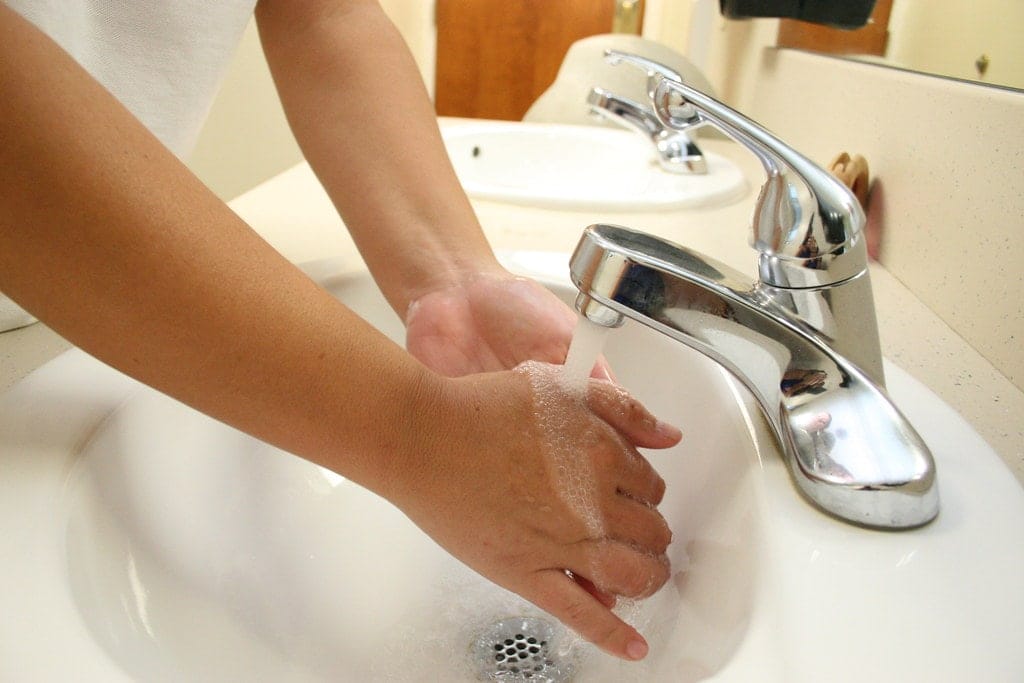Stay Home If You’re Sick. Wash Hands Regularly. In NYC Schools, Following Coronavirus Guidance Is Harder than It Sounds.


By Alex Zimmerman. Originally published on Chalkbeat March, 2.
Less than 24 hours after New York reported its first confirmed case of the coronavirus, top city and state officials urged calm while also announcing new efforts to disinfect schools across the state.
In addition to deep cleaning efforts, city officials have emphasized that the best way to fight the coronavirus is regular hand washing, covering your mouth and nose when sneezing or coughing, and staying home if you’re sick.
But following this guidance is more complicated given the reality inside New York City classrooms, many families said.
School bathrooms are not always stocked with soap, and there is little time during the day to repeatedly wash hundreds of children’s hands. Schools that use attendance records in their competitive admissions process may make parents reluctant to keep their children at home even if they’re sick. And for families who work hourly wage jobs, taking off to care for a sick child isn’t always feasible. The city is also facing a shortage of school nurses.
Long Island City parent Meghan Cirrito, who has two sons, ages 5 and 8, said schools do not seem to have strict hand washing procedures in place.
“They’re not given a lot of time to wash their hands before or after recess or before and after lunch, and I think that’s pretty standard,” she said.
Her children’s schools often lean on parents to buy supplies like tissues and hand sanitizer — and such items often dwindle during the height of flu season.
Mark Treyger, chairman of City Council’s education committee, said he has previously heard reports of poor access to soap, toilet paper, and other supplies.
“I want to send a proactive message to DOE: [they] should be making sure that every school has adequate supplies in terms of soap or any other bathroom hygiene supplies,” he said.
A shortage of school nurses could make it challenging for schools to quickly address sicknesses and help parents determine whether they should seek medical attention. Many city schools do not have full-time nurses, Treyger said.
A city education department spokesperson, Danielle Filson, said all school bathrooms are required to have soap and paper towels and custodians have received guidance on cleaning high-traffic areas.
At a press conference Monday, Gov. Andrew Cuomo said the state would institute new cleaning protocols in schools and on public transportation. “Many will use bleach, which is a good protocol in the flu season anyway,” he said. A state health department spokesperson said guidance about the disinfecting protocols were “forthcoming,” but did not provide details.
The coronavirus often presents with flu-like symptoms, and is relatively mild in many cases, but can ultimately lead to severe respiratory issues. About 3,000 people have been killed by the coronavirus worldwide.
Children do not appear to be the highest risk group. “So far, it does not seem to be a disease that focuses on our kids,” Mayor Bill de Blasio said.
Still, the disease has already started to affect some schools in other regions of the country. A high school student in Washington State appears to be among those who have been infected. An elementary school employee was the first apparent case in Oregon, and there have been a few school closures in the United States connected to the disease.
De Blasio has previously said the city would only close schools in extreme situations and at the direction of public health officials.
In line with guidance from the federal Centers for Disease Control and Prevention, city officials have encouraged families to keep their children at home if they’re sick.
But some parents say that advice is in tension with some schools’ admissions policies, which take student attendance into account in addition to factors like grades and test scores. More than 20% of middle and high schools use a combination of those factors to admit students. Some schools count absences against students in the admissions process if they miss a single day.
“Parents send their kids to school sick just so they get marked present,” said Robin Broshi, a member of District 2’s parent council, in Manhattan. “It has the potential to cause so much harm to public health, it just seems like a no brainer” to alter the policy, she added.
For his part, Treyger agreed that missing school should not hurt a student in the admissions process if a student has a note from a medical professional.
Asked about attendance, de Blasio signaled there would not be any changes in the immediate future.
“Right now, how we would address school attendance issues and admissions and all, that’s over the horizon and we’re not there yet,” he said. “We’re obviously going to take into account aberrant realities if we get there.”
Schools Chancellor Richard Carranza emphasized Monday that the priority right now is following the advice to stay home. “We want to emphasize if a child is sick, do not worry about admissions and all of those things,” he said. “If the child is sick, stay home and get some attention.”




